Table of Contents
- Introduction
- Nutritional Composition of Skim Milk
- Impact of Skim Milk on Cholesterol Levels
- Other Potential Benefits of Skim Milk
- Considerations When Including Skim Milk in Your Diet
- Alternative Options for Lowering Cholesterol
- Conclusion
Introduction
Skim milk, also known as fat-free or nonfat milk, has been touted as a potential aid in lowering cholesterol levels. In this article, we explore the relationship between skim milk and cholesterol to determine whether it is indeed beneficial in maintaining healthy cholesterol levels.
Nutritional Composition of Skim Milk
Skim milk is derived from regular whole milk by removing the milkfat, resulting in a lower-fat alternative. It is a rich source of essential nutrients, including calcium, vitamin D, and high-quality proteins, while being lower in calories compared to whole milk. The composition of skim milk makes it an attractive option for those aiming to reduce their fat intake while maintaining proper nutrition.
Skim milk is often recommended for individuals looking to lower their cholesterol levels. Here is some information about its nutritional composition:
- Skim milk is low in fat, containing only around 0.1% fat.
- It is a rich source of high-quality protein, which is essential for building and repairing tissues in the body.
- Skim milk contains various essential vitamins and minerals, such as calcium, phosphorus, potassium, and vitamin D.
- Calcium found in skim milk helps promote healthy bones and teeth.
- It is also a good source of vitamin B12, which is necessary for maintaining healthy nerve function and producing red blood cells.
- Skim milk has no cholesterol, making it a healthier alternative to whole milk or dairy products with higher fat content.
- Consuming skim milk can help lower cholesterol levels as part of a balanced diet and a healthy lifestyle.
Remember to consult with a healthcare professional or a registered dietitian to determine the best dietary choices for your specific health needs and goals.
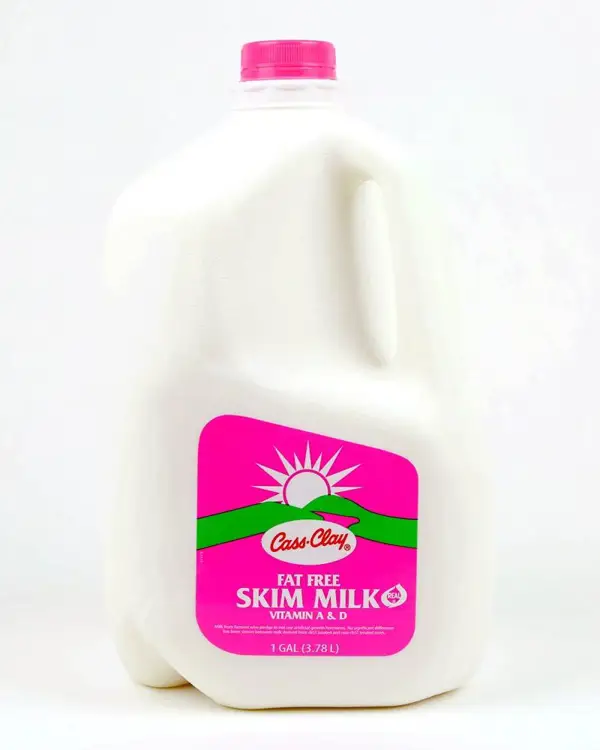
Impact of Skim Milk on Cholesterol Levels
Several studies have indicated a positive correlation between skim milk consumption and cholesterol reduction. Skim milk contains compounds that may help lower LDL (low-density lipoprotein) cholesterol, often referred to as "bad" cholesterol, which can contribute to cardiovascular diseases. These compounds include bioactive peptides and certain proteins that may promote cholesterol metabolism and reduce the risk of heart-related issues.
Skim milk, also known as fat-free milk, is a popular choice for individuals looking to maintain a healthy lifestyle and reduce their cholesterol levels. Let's explore the impact of skim milk on cholesterol levels:
1. Low Fat Content:
Skim milk contains less than 0.5% fat, making it an excellent option for those aiming to reduce their intake of saturated fats, which are known to raise cholesterol levels. By choosing skim milk, you can significantly decrease your saturated fat consumption without compromising on taste or nutrition.
2. Nutrient-Rich:
Despite being low in fat, skim milk remains a great source of essential nutrients such as protein, calcium, vitamin D, and potassium. These nutrients are vital for overall health and can be easily incorporated into a balanced diet. By opting for skim milk, you are ensuring that your body receives the necessary nutrients while taking steps to manage cholesterol levels.
3. Potential Impact on Cholesterol Levels:
Studies suggest that skim milk may help in lowering cholesterol levels, primarily due to its low fat content. Consuming skim milk instead of whole milk or higher-fat dairy products may contribute to a decrease in low-density lipoprotein (LDL) cholesterol, often referred to as "bad" cholesterol. Lower LDL levels can significantly reduce the risk of cardiovascular diseases.
4. Healthier Alternative:
If you have high cholesterol levels or a family history of heart disease, incorporating skim milk into your diet can be a wise choice. It serves as a healthier alternative to full-fat milk products, allowing you to maintain a well-balanced diet while taking care of your cardiovascular health.
In conclusion, skim milk is indeed beneficial for lowering cholesterol levels. Its low fat content, nutrient-rich composition, and potential impact on reducing LDL cholesterol make it a recommended option for individuals concerned about their cholesterol levels. Incorporating skim milk into your daily routine can be a simple yet effective step towards a heart-healthy lifestyle.
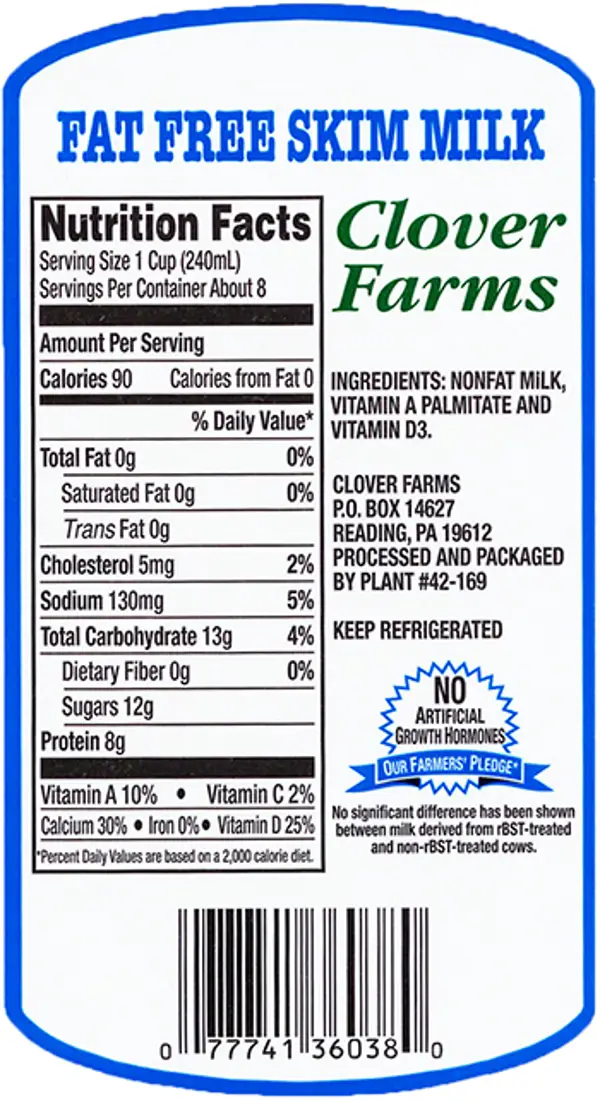
Other Potential Benefits of Skim Milk
Besides potentially aiding in lowering cholesterol, skim milk offers additional health benefits. Its high calcium content supports bone health, while the protein content helps in muscle growth and repair. Additionally, the presence of vitamins and minerals enhances overall nutrition, making it a valuable addition to a balanced diet.
Skim milk, also known as fat-free or non-fat milk, is a type of milk from which the cream or fat has been removed. While it is often recommended for individuals looking to lower their cholesterol levels, skim milk offers several other potential benefits as well.
1. Low in Saturated Fat
Skim milk is naturally low in saturated fat, which is known to contribute to high cholesterol levels. By opting for skim milk instead of whole milk, you can significantly reduce your saturated fat intake and promote heart health.
2. Good Source of Protein
Skim milk is an excellent source of protein, which is essential for building and repairing tissues, producing enzymes and hormones, and maintaining overall health. Including skim milk in your diet can help meet your daily protein needs without adding unnecessary fats.
3. Rich in Vitamins and Minerals
Skim milk is fortified with various essential vitamins and minerals, such as vitamin D, calcium, and phosphorus. These nutrients are crucial for maintaining strong bones, supporting the immune system, and regulating cell functions.
4. Weight Management
Skim milk can be beneficial for individuals trying to manage their weight. It is low in calories and fat, making it a healthier option compared to whole milk. Consuming skim milk as part of a balanced diet can help you maintain a healthy weight or even aid in weight loss.
5. Hydration
Skim milk is a good source of hydration due to its high water content. Staying adequately hydrated is vital for overall health and can have a positive impact on cholesterol levels as well.
While skim milk can be a valuable addition to a heart-healthy diet aimed at lowering cholesterol, it offers numerous other benefits that support overall well-being. Incorporating skim milk into your daily routine can contribute to a balanced and nutritious diet.
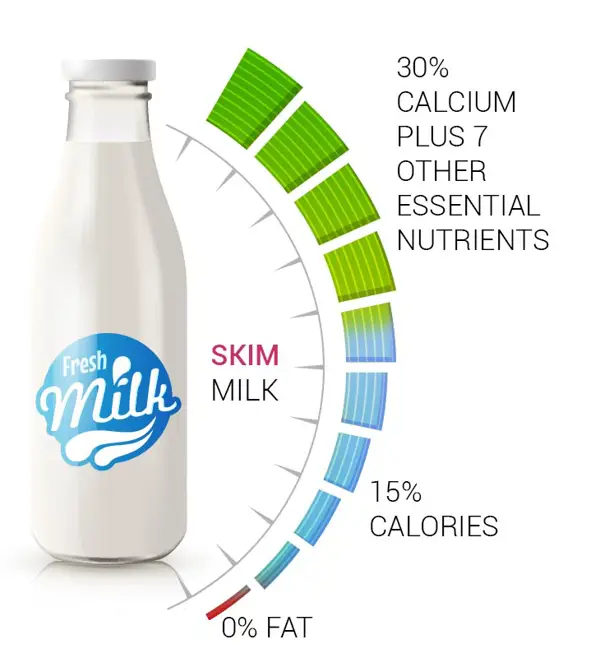
Considerations When Including Skim Milk in Your Diet
Although skim milk can be beneficial, it is important to consider individual dietary requirements and health conditions. Individuals with lactose intolerance or milk allergies may need to seek alternative options. Furthermore, those who rely on whole milk for specific dietary needs, such as higher caloric intake, should consult a healthcare professional before making any changes.
Skim milk is often considered a healthy option when it comes to including dairy products in your diet. It is known for its lower fat content compared to whole milk, making it a popular choice for those watching their calorie intake or aiming to reduce their cholesterol levels. Here are some considerations to keep in mind:
Benefits of Skim Milk
- Low in Fat: Skim milk contains minimal fat content, making it a great option for individuals seeking to reduce their overall fat intake.
- Rich in Protein: Skim milk is a good source of high-quality protein, which is essential for building and repairing body tissues.
- Calcium and Vitamins: Skim milk is typically fortified with calcium and essential vitamins like vitamin D, which promote bone health.
Skim Milk and Cholesterol Levels
Research suggests that including skim milk in your diet can have a positive impact on lowering cholesterol levels. Skim milk contains less saturated fat compared to whole milk, which is associated with high cholesterol levels. By opting for skim milk, you can enjoy the benefits of milk while minimizing your intake of saturated fat.
Considerations
While skim milk can be a valuable addition to your diet, it's essential to consider a few factors:
- Individual Differences: Each person's body reacts differently to foods, so it's crucial to observe how skim milk affects your cholesterol levels specifically.
- Nutritional Balance: Incorporating skim milk into your diet should be part of an overall balanced eating plan. Consult with a healthcare professional or registered dietitian for personalized guidance.
- Food Allergies or Intolerances: Some individuals may have allergies or intolerances to milk or lactose. If you experience any adverse reactions, it's important to consult a healthcare professional.
Including skim milk in your diet can be a beneficial choice for individuals aiming to reduce their cholesterol levels or manage their weight. It provides essential nutrients while minimizing fat intake. However, it's essential to consider individual differences, maintain a balanced diet, and be mindful of any allergies or intolerances. As always, consult with a healthcare professional for personalized advice regarding your dietary needs.
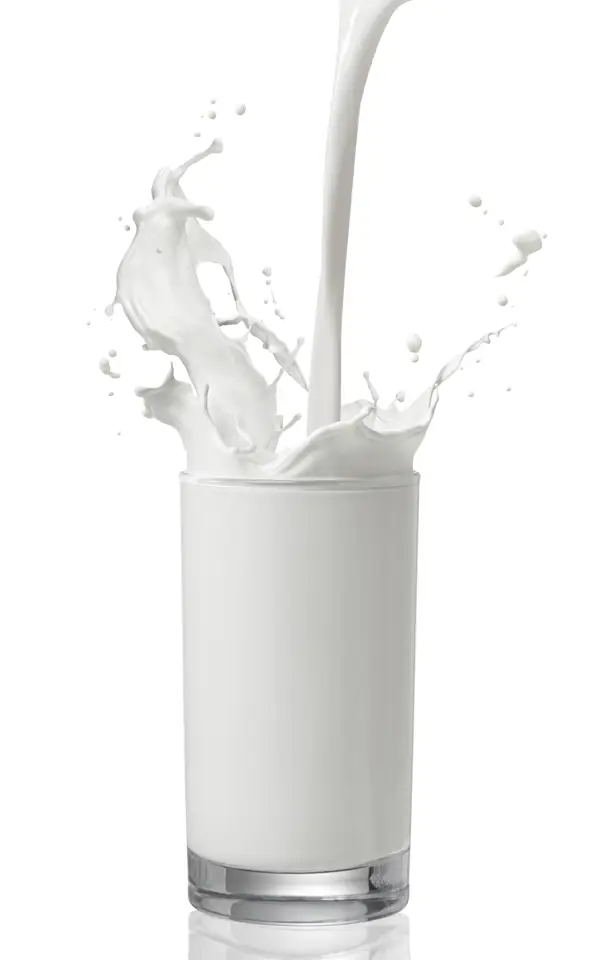
Alternative Options for Lowering Cholesterol
Skim milk is not the only solution for reducing cholesterol levels. Other alternatives that may help in managing cholesterol include consuming other low-fat dairy products like yogurt or cottage cheese, increasing intake of fruits and vegetables, exercising regularly, and reducing intake of saturated and trans fats. Finding a comprehensive approach that works for your unique situation is key.
Cholesterol is a waxy, fat-like substance that is found in our bodies and certain foods. High levels of cholesterol can increase the risk of heart disease, stroke, and other health issues. Therefore, it is important to keep cholesterol levels in check. One way to achieve this is by exploring alternative options, such as consuming skim milk.
Skim Milk and Cholesterol
Skim milk, also known as fat-free or non-fat milk, is a dairy product that has had all the cream removed. It contains a lower amount of fat compared to whole milk. Since cholesterol is mainly found in animal products, including dairy, opting for skim milk can be beneficial in lowering cholesterol levels.
The Benefits of Skim Milk
Skim milk not only helps reduce the intake of dietary cholesterol but also provides several other benefits. Firstly, it is an excellent source of calcium, which is essential for maintaining healthy bones and teeth. Additionally, it is rich in protein, making it a good choice for individuals looking to increase their protein intake without the added fat.
Other Alternative Options for Lowering Cholesterol
While skim milk can be a valuable addition to a cholesterol-lowering diet, there are several other alternatives worth considering:
- Fruits and vegetables: Including a variety of colorful fruits and vegetables in your diet can help reduce cholesterol levels. These are low in calories and high in fiber, which aids in managing cholesterol.
- Whole grains: Incorporating whole grains like oats, brown rice, and whole wheat bread into your meals can help lower cholesterol levels. They are high in fiber and have been shown to reduce bad cholesterol (LDL) levels.
- Legumes: Beans, lentils, and chickpeas are excellent sources of soluble fiber and can assist in reducing cholesterol levels.
- Healthy fats: Replacing saturated fats (found in red meat and full-fat dairy) with healthy fats like those in olive oil, avocados, and nuts can help lower cholesterol.
- Fatty fish: Consuming fatty fish such as salmon, mackerel, and trout, which are high in omega-3 fatty acids, can help reduce triglycerides and improve heart health.
Remember, before making any significant changes to your diet, it is always advisable to consult with a healthcare professional or a registered dietitian who can provide personalized recommendations based on your specific health needs.
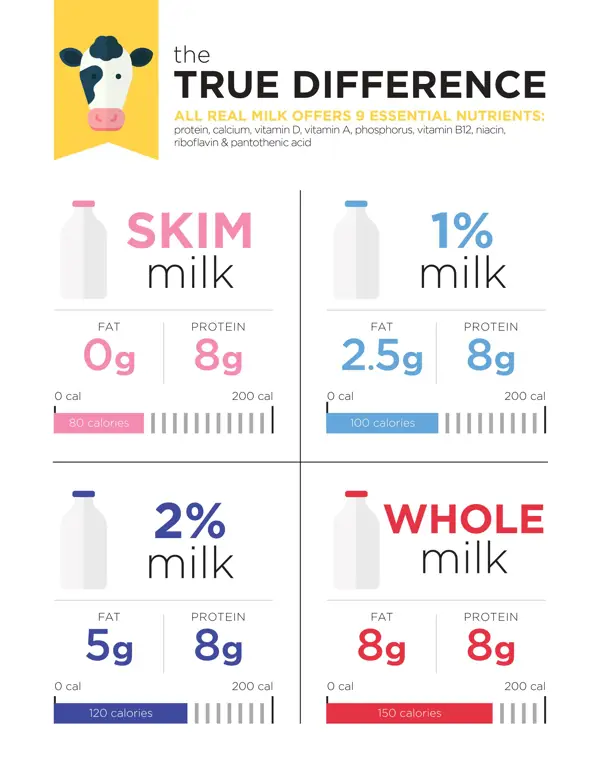
Conclusion
In conclusion, skim milk shows potential as an aid in lowering cholesterol levels. Its nutritional composition, coupled with its impact on cholesterol reduction, makes it an appealing choice for those seeking to maintain healthy cholesterol levels. However, it is essential to consider individual health circumstances and consult with a healthcare professional to ensure it aligns with your specific dietary needs.
Key Takeaways
- Skim milk, or fat-free milk, has been suggested to have a positive impact on cholesterol levels.
- It contains bioactive compounds that may help reduce LDL cholesterol.
- Skim milk is a good source of essential nutrients and is lower in calories compared to whole milk.
- Individuals with lactose intolerance or allergies should consider alternatives.
- Managing cholesterol involves adopting a comprehensive approach, including exercise and a balanced diet.
Frequently Asked Questions (FAQ)
1. Can skim milk be beneficial for people with high cholesterol?
Skim milk has the potential to aid in lowering cholesterol levels due to its unique composition. However, individual responses may vary, so it is advisable to consult a healthcare professional.
2. Are there any potential drawbacks to consuming skim milk?
Skim milk is generally safe for most individuals, but those with lactose intolerance or allergies should opt for alternatives. It's always wise to consider your specific dietary needs and consult with a healthcare professional.
3. Can skim milk alone significantly lower cholesterol levels?
While skim milk may contribute to lowering cholesterol, adopting a comprehensive approach is key. Incorporating other lifestyle changes like regular exercise and a well-balanced diet is essential for overall cholesterol management.
4. Are there any other dairy products that can help in managing cholesterol?
Yes, other low-fat dairy products like yogurt or cottage cheese may also aid in managing cholesterol levels due to their nutritional composition.
5. Can skim milk help with weight loss?
Skim milk is lower in calories compared to whole milk, making it a suitable choice for individuals aiming for weight loss. However, maintaining a calorie deficit and a balanced diet overall are crucial for sustainable weight management.



Recent Comments